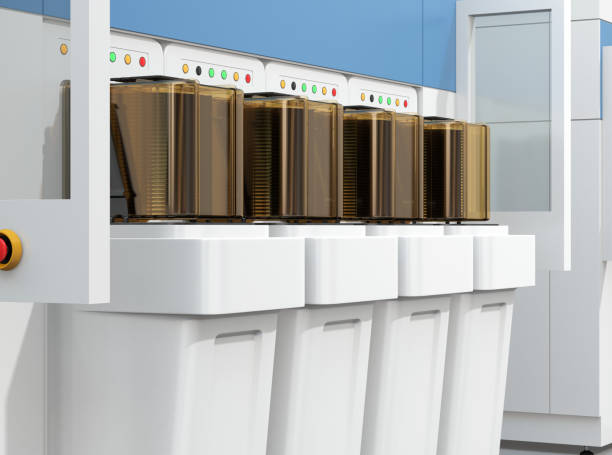In an era where digital technology is reshaping the hearing aid market, analog hearing aids continue to hold their ground as a reliable, effective, and affordable option. Renowned for their ability to deliver warm and natural sound quality, analog hearing aids are the perfect choice for individuals who value simplicity and consistency over cutting-edge features. Let’s explore the enduring appeal of analog hearing aids, their benefits, and why they remain a timeless choice for many.
What Are Analog Hearing Aids?
Analog hearing aids amplify all sounds uniformly, just as they naturally occur in the environment. Unlike digital hearing aids, which process sound signals digitally for advanced filtering and customization, analog devices function by amplifying sound waves continuously. This traditional approach to sound amplification offers a raw, unprocessed, and natural auditory experience.
For many, analog hearing aids feel more organic, as they closely replicate the way human ears naturally interpret sound. This is particularly beneficial for people who find digital sound processing too sharp or artificial.
The Advantages of Analog Hearing Aids
Analog hearing aids continue to be a popular choice for specific audiences due to several notable advantages:
1. Natural Sound Quality
One of the most significant benefits of analog hearing aids is their ability to produce a warm and full-bodied sound. This quality makes them an excellent option for music enthusiasts and individuals who prefer unaltered, natural hearing experiences.
2. Cost-Effective Solution
Analog hearing aids are typically more affordable than their digital counterparts. This makes them accessible to a broader range of people, including those on a tight budget who still want an effective solution for their hearing challenges.
3. Simple and User-Friendly
Many users, particularly seniors, appreciate the simplicity of analog hearing aids. With basic controls and fewer settings to manage, they are easy to operate. The learning curve is minimal, which is a major advantage for individuals who are not tech-savvy.
4. Durability and Longevity
Analog hearing aids are often built with robust components, making them highly durable and reliable over time. This resilience ensures they can withstand daily wear and tear, making them a long-lasting investment.
5. Ideal for Severe Hearing Loss
Analog hearing aids are known for their powerful amplification capabilities, making them particularly effective for individuals with moderate to severe hearing loss. Their ability to boost all sounds equally ensures no detail is missed in communication.
Types of Analog Hearing Aids
Analog hearing aids are available in several styles to cater to individual preferences and needs:
1. Behind-the-Ear (BTE)
BTE hearing aids are versatile and powerful, with the main component resting comfortably behind the ear. They are ideal for individuals who need significant amplification.
2. In-the-Ear (ITE)
ITE models are designed to fit snugly within the outer ear, offering a more discreet option without compromising on performance.
3. Body-Worn Hearing Aids
These models feature a small device worn on the body, connected to an ear mold by a cord. They are especially effective for profound hearing loss, as they provide robust amplification.
Analog vs. Digital Hearing Aids: Key Differences
The debate between analog and digital hearing aids often comes down to personal preferences and specific hearing needs. Here’s a comparison to help you make an informed decision:
| Feature | Analog Hearing Aids | Digital Hearing Aids |
|---|---|---|
| Sound Processing | Amplifies all sounds continuously | Processes sounds into digital signals for fine-tuning |
| Customization | Minimal adjustability | Highly programmable with advanced settings |
| Sound Quality | Natural and fuller | Clearer, with background noise reduction |
| Cost | More affordable | Higher due to advanced features |
| Technology | Basic and straightforward | Offers Bluetooth, AI, and other smart features |
While digital hearing aids offer greater flexibility and advanced functionality, analog devices excel in providing natural sound quality and ease of use.
Who Benefits the Most from Analog Hearing Aids?
Analog hearing aids are not for everyone, but they cater exceptionally well to specific groups of users:
1. Music Lovers
Individuals who enjoy music often find that analog hearing aids provide a richer and more authentic listening experience. The continuous sound amplification allows users to appreciate the nuances of melodies and instruments.
2. Budget-Conscious Buyers
For those looking for a cost-effective solution to improve their hearing, analog hearing aids offer excellent value for money.
3. Seniors
With their straightforward operation and minimal technical complexity, analog hearing aids are ideal for elderly users who may not want or need advanced features.
4. Individuals with Severe Hearing Loss
The powerful amplification capabilities of analog hearing aids make them an excellent choice for those with moderate to profound hearing impairments.
Caring for Your Analog Hearing Aids
To ensure your analog hearing aids perform optimally for years to come, proper care and maintenance are essential. Here are some tips to keep them in top condition:
- Clean Regularly: Wipe your hearing aids with a soft, dry cloth to prevent earwax and debris buildup.
- Store Safely: When not in use, store your devices in a protective case away from moisture and heat.
- Avoid Moisture: Analog hearing aids are not waterproof, so avoid exposing them to water. Consider using a dehumidifier designed for hearing aids if you live in a humid climate.
- Replace Batteries Promptly: Low batteries can affect sound quality, so always have spare batteries on hand.
- Regular Servicing: Schedule periodic check-ups with your hearing care provider to ensure your devices are in optimal working condition.
Analog Hearing Aids: A Timeless Choice in the Digital Age
Despite the rapid evolution of hearing aid technology, analog devices continue to hold their place as a trusted solution for individuals who value natural sound and simplicity. Their durability, affordability, and user-friendly design make them a reliable choice for people of all ages.
For anyone considering analog hearing aids, consulting a professional audiologist is essential. A hearing specialist can help identify your specific needs and recommend the best device for your lifestyle and hearing profile.
Where to Find Analog Hearing Aids
If you’re looking for a reputable provider of analog hearing aids, Hearing Hope in New Delhi offers a wide range of options. Their expert audiologists provide personalized consultations to ensure you find the perfect hearing aid that meets your needs and preferences.
Conclusion
Analog hearing aids represent a timeless choice for individuals seeking a straightforward, affordable, and natural-sounding solution to their hearing needs. While digital hearing aids offer advanced features, analog models remain unparalleled in delivering warm and authentic sound quality.
Whether you’re a music lover, a senior, or someone with profound hearing loss, analog hearing aids provide an effective and dependable solution. Embrace the simplicity and reliability of analog hearing aids and rediscover the joy of clear hearing.



